

UTAR Kampar Campus Dewan Tun Dr Ling Liong Sik was the venue for the Asian Science Camp (ASC) 2017 which was held from 20 to 26 August 2017.
Held for the first time in Malaysia, the annual science camp aims to deepen Science, Technology, Engineering and Mathematics (STEM) interests among Asian youths and emphasise the importance of STEM via close interaction with STEM luminaries.
The ASC 2017 opening ceremony held on 21 August 2017 was graciously presided over by its Royal Patron, His Royal Highness Sultan Nazrin Muizzuddin Shah Ibni Almarhum Sultan Azlan Muhibbuddin Shah Al-Maghfur-Lah, The Sultan of Perak Darul Ridzuan. Upon the arrival of His Royal Highness Sultan Nazrin Shah, he was cordially received and welcomed by the Menteri Besar of Perak Darul Ridzuan Dato’ Seri DiRaja Dr Zambry bin Abd Kadir, Minister of International Trade and Industry II of Malaysia and UTAR Council Member Dato’ Seri Ong Ka Chuan, UTAR President-cum-ASEAN Academy of Engineering and Technology (AAET) President Ir Prof Academician Dato’ Dr Chuah Hean Teik and ASC Steering Committee Chairman-cum-Honorary President of AAET Ir Academician Datuk Hong Lee Pee.
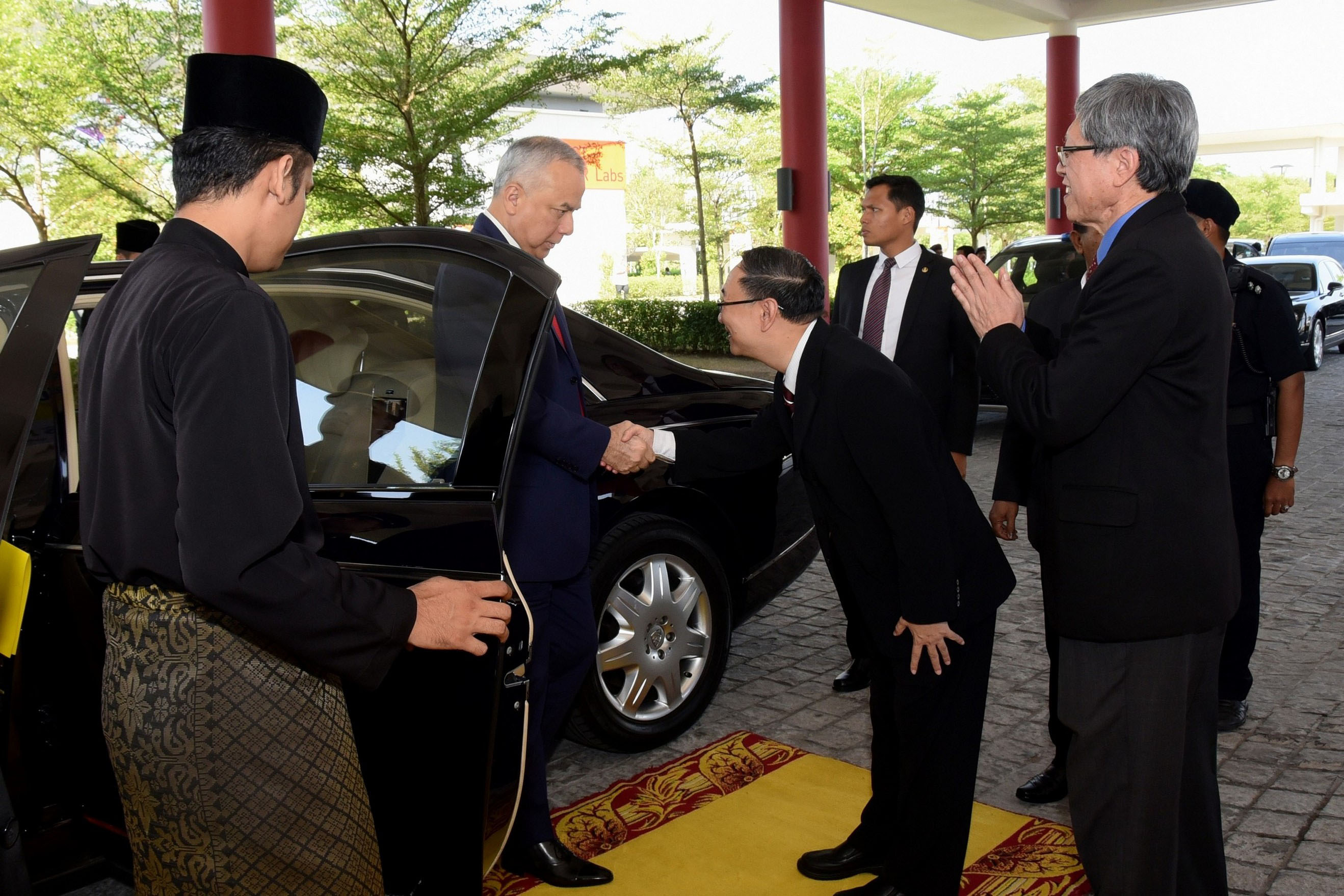
Prof Chuah greeting Sultan Nazrin upon his arrival
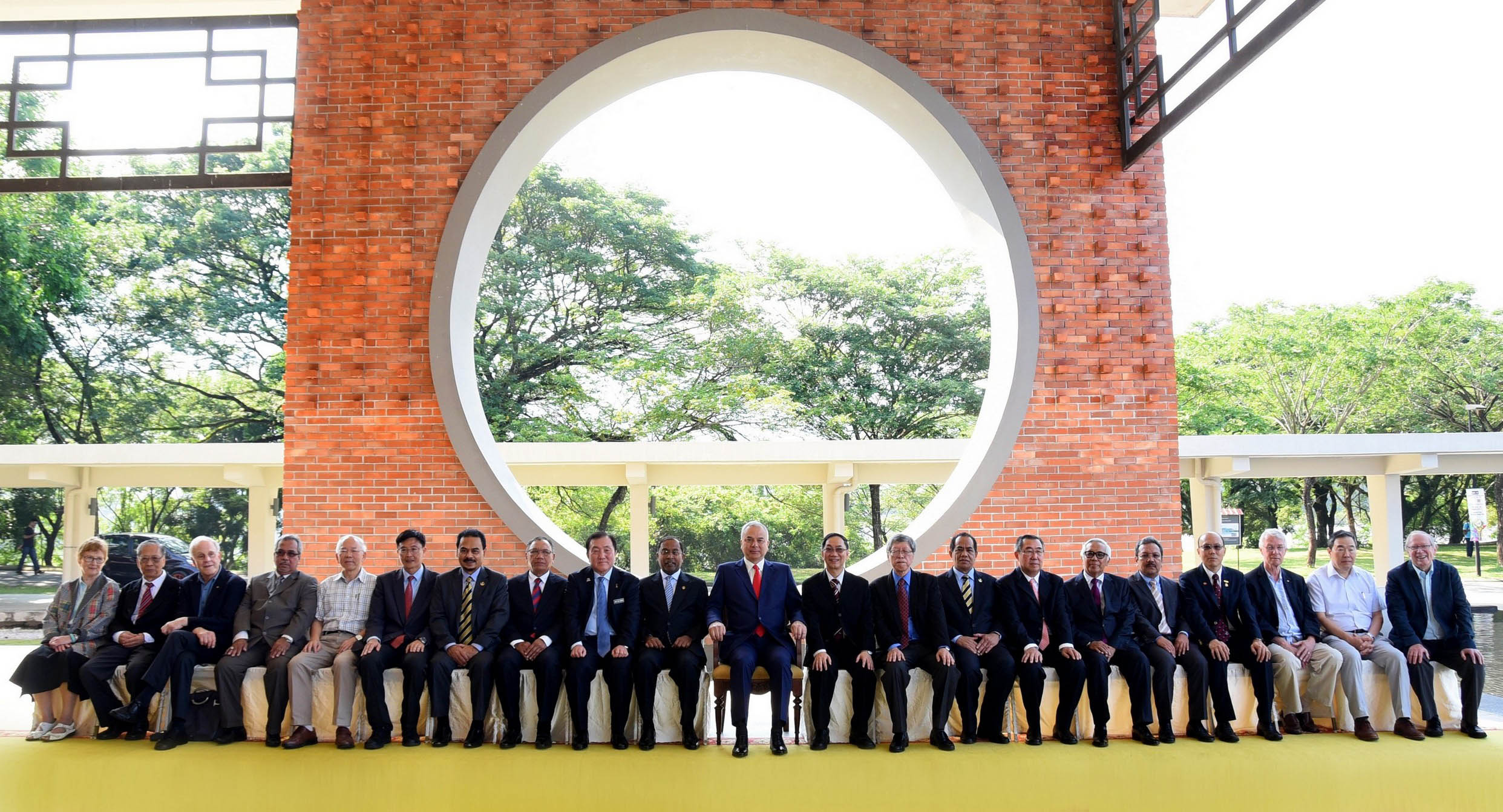
From left: Prof Cory, Prof Yong, Prof Gross, Datuk Talib, Prof Lin,
Hew, Dato’ Amin, Tan Sri Zahidi,
Dato’ Seri Ong, Dato’ Seri Zambry, His Royal Highness Sultan Nazrin,
Prof Chuah, Datuk Hong, Dato’ Seri Puhat, Tan Sri Lee, Tan Sri Zakri,
Datuk Yusoff, Ir Tan, Prof Roberts, Prof Poo and Prof Adams
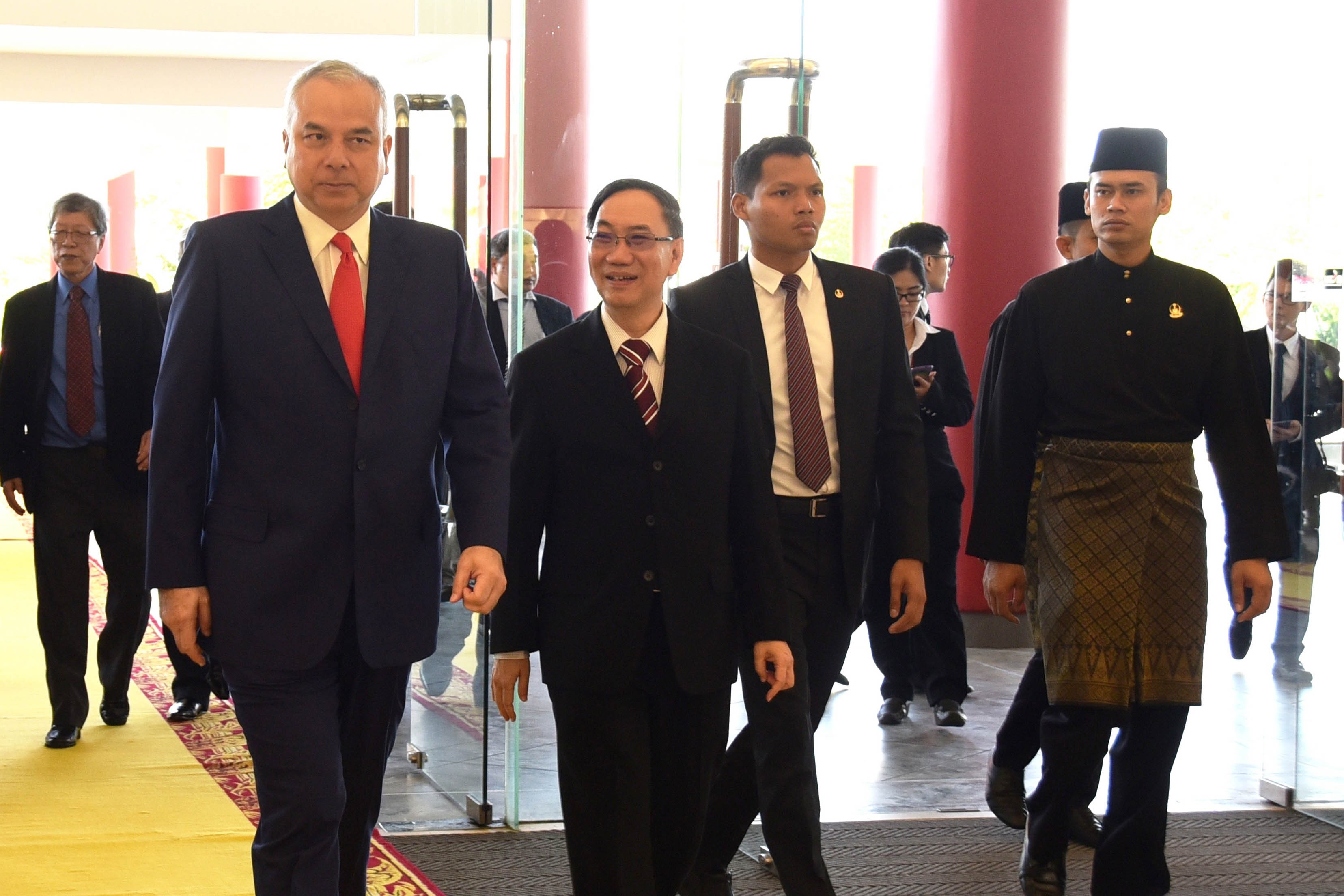
Sultan Nazrin making his entrance to the hall accompanied by Prof Chuah

From left: Prof Chuah and Datuk Hong
Prof Chuah in his speech thanked His Royal Highness Sultan Nazrin Shah for taking the time to grace the opening ceremony of ASC 2017 and said, “We are on the opening page of a promising new chapter in international cooperation and collaboration with regards to STEM education. We can use this event to discuss and examine in depth issues close to our hearts and hopefully find common grounds for us to explore solutions that will benefit all of us, and open doors to more exchanges that can elevate the awareness and interests among youths on the importance of STEM in nation building.”
He added, “This science camp is one of the many initiatives of Kuala Lumpur Engineering Science Fair (KLESF) who works very closely with the Ministry of Education, schools and institutions to implement strategies and conduct practical programmes in support of STEM education in the country. The participation of more than 250 international attendees from more than 30 economies and the attendance of Malaysian students and teachers from more than 40 schools, is indeed heartening to note and it reflects the keen interest among us all in striving towards a common goal, that is to network, learn and exchange notes on the challenges faced by us all as academics, teachers and learners in STEM education. Scientific progress and the public understanding of science have a direct bearing on many of our priority concerns – including health education, employment and building resilience in our societies to face the challenges in this increasingly complex world.”
Datuk Hong in his speech said, “It gives me great pleasure to welcome His Royal Highness Sultan Nazrin Shah, the Sultan of Perak Darul Ridzuan as the Royal Patron of ASC 2017 to grace the opening ceremony. Today is a very significant day for us, as we kick-start the ASC, which for the first time, is held in Malaysia.”
He added, “We must look deeper, especially now in the current digital age, or better known as the Fourth Industrial Revolution, where science and technology are strongly impacting society with computing power, connectivity, Artificial Intelligence (AI) and biotechnology. Thus, not only do we need to build student’s interest in sciences, but we must also develop their knowledge and skills to meet the demands of the fast-changing technology and rapidly evolving economy. I am hopeful that ASC 2017, through its rich array of keynote address and lectures, will in some ways not only inspire people to be actively involved in STEM projects but also utilise STEM for development and sustainability purposes. I strongly believe it is a platform that will bring to light the importance of developing talents in STEM.”
Also present at the opening ceremony were the Orang Kaya Bendahara Seri Maharaja Dato’ Seri DiRaja Tan Sri (Dr) Mohd Zahidi bin Haji Zainuddin, Science Advisor to the Prime Minister of Malaysia Prof Tan Sri Zakri Abd Hamid, Orang Besar Jajahan Kampar Toh Sedewa Raja Datuk Abdul Talib bin Abdul Fahmi, Perak State Secretariat Dato’ Seri Abdul Puhat bin Mat Nayan, Chairperson of the Committee of Education, Science, Environment and Green Technology of Perak State Dato’ Dr Muhammad Amin bin Zakaria, Chairperson of the Committee of Tourism, Arts, Culture, Multimedia and Communications of Perak State Dato’ Nolee Ashilin binti Mohammed Radzi, Chairperson of the Committee of Health, Public Transport, Non-Islamic Affairs, National Integration and New Villages of Perak State Dato’ Dr Mah Hang Soon, Chief Executive Officer Kuala Lumpur Kepong Berhad and UTAR Board of Trustees Member Tan Sri Dato’ Seri Lee Oi Hian, Malaysian Industry-Government Group for High Technology (MIGHT) President Datuk Dr Yusoff Sulaiman, The Institutions of Engineers, Malaysia (IEM) President Ir Tan Yean Chin, UTAR Council Member Hew Fen Yee, Chairperson of ASC 2017 International Committee Prof Lin Ming-Juey, ASC 2017 Organising Committee Chairperson-cum-UTAR Vice President for R&D and Commercialisation Prof Ir Dr Lee Sze Wei, UTAR Vice President for Internationalisation and Academic Development Prof Ir Dr Ewe Hong Tat, Members of the Cabinet, other Perak State Executive Council Members, the Heads of the Perak State agencies, dignitaries, government agencies, the ASC international committee, distinguished guests, participants, UTAR staff and students.
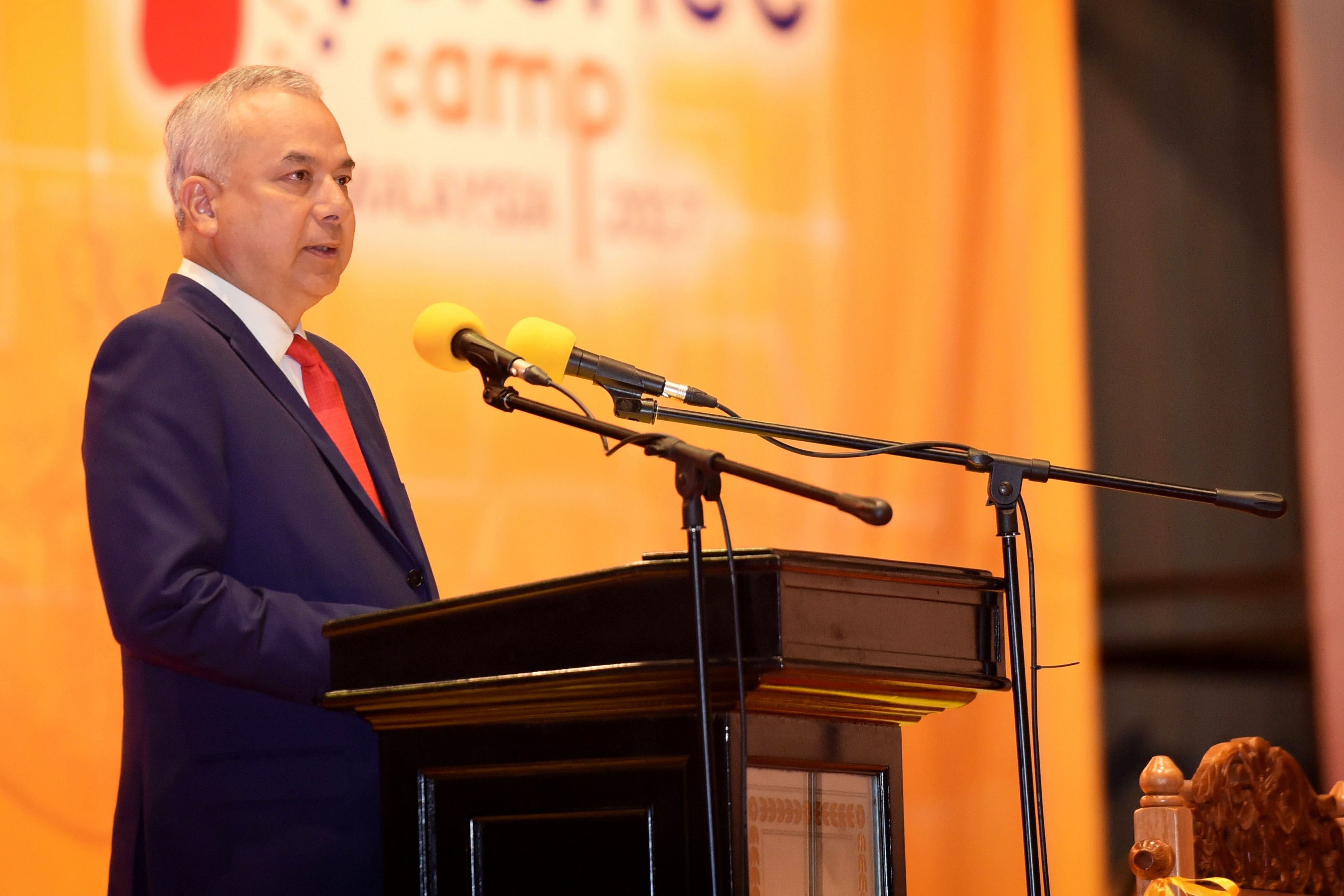
Sultan Nazrin delivering his royal address
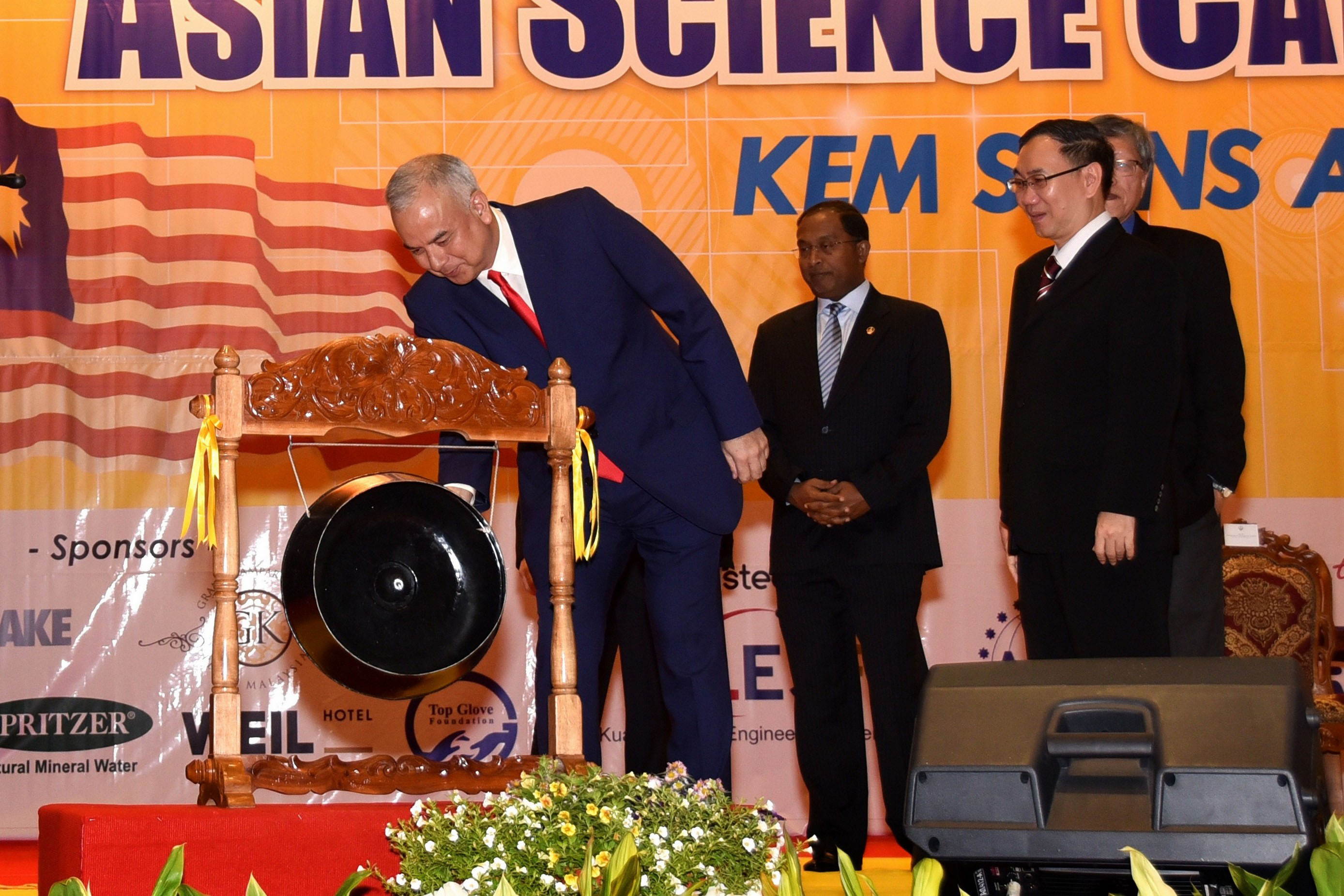
Sultan Nazrin hitting the ‘gong’ to mark the opening of ASC 2017
His Royal Highness Sultan Nazrin said, “This is an extremely exciting time to be a young scientist, as you are, in the many areas covered under the rubric of STEM, the theme of this year’s science camp. It may possibly even be the most exciting time ever to be a scientist, as ever-more astounding advances are being made in so many fields. Science fiction is becoming science fact, as flying cars and bionic limbs become a reality. And advances in artificial intelligence and robotisation are pushing boundaries in directions that are both expected and unpredictable. The speed and extent of change is such that some futurists believe that we are reaching an historical tipping point, which will transform our world beyond recognition. This creates extraordinary opportunities for the world, and for yourselves, as both the beneficiaries and architects of some of these advances. Some of you here attending this camp may well go on to shape some of these revolutionary technologies. But the acceleration of technological change also presents major challenges for us all, as we navigate through this turbulent and unpredictable world. Advances in AI, robotisation and biotechnology are already allowing innovations such as genetically modified insects and artificially enhanced or manipulated humans. These are very welcome for their medical and humanitarian contributions. But such developments also raise deep and challenging questions about even what it means to be human.”
His Royal Highness Sultan Nazrin also said, “Beyond such difficult philosophical questions lie the more immediate and equally challenging issues of the future of work and the workplace in an era of increasingly capable AI and robotics. The impacts of recent advances will probably be felt more quickly in this area, driven by the economic logic of investment for profit. This area also has very direct implications for yourselves, whose working lives may look very different from those of previous generations. This transformation of employment patterns will also have broader political implications, as society tries to adapt to the new realities. The economy will continue to evolve regardless, along with technological innovation. There are many dire predictions of the likely impact of the coming wave of technological change in employment and the workplace. One study suggests that at least 50% of seven hundred different current job categories may be fully automated in the coming years. At the same time, large productivity gains will be generated by the new technologies. But the costs and benefits of the coming transformation are unlikely to be evenly distributed, and this could contribute to worsening inequality. Combined with mass unemployment, this could result in political and social upheaval on a massive scale.”
Therefore, The Sultan has called for sufficient policy-making; regulation and education in the fields of science, technology, engineering and mathematics to ensure new technologies are used for the greater good instead of instigating more inequality among the people. He said scientists should play an important role in policy development and regulation of scientific and technological advances to ensure they were effectively controlled and managed for the benefit of all.
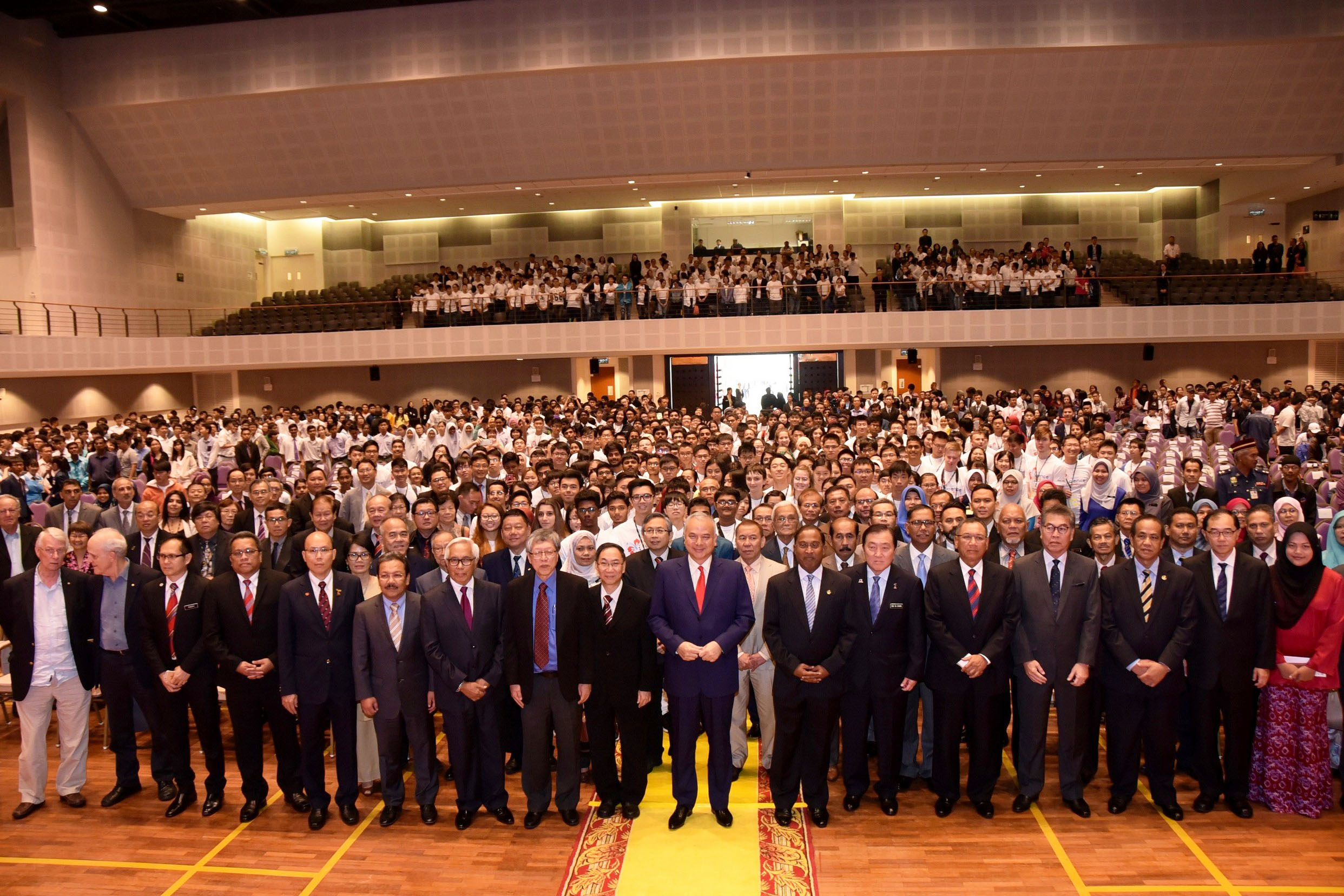
A group photograph with Sultan Nazrin

Sultan Nazrin visiting the UTAR Gallery accompanied by Dato’ Seri Zambry, Dato’ Seri Ong and Prof Chuah
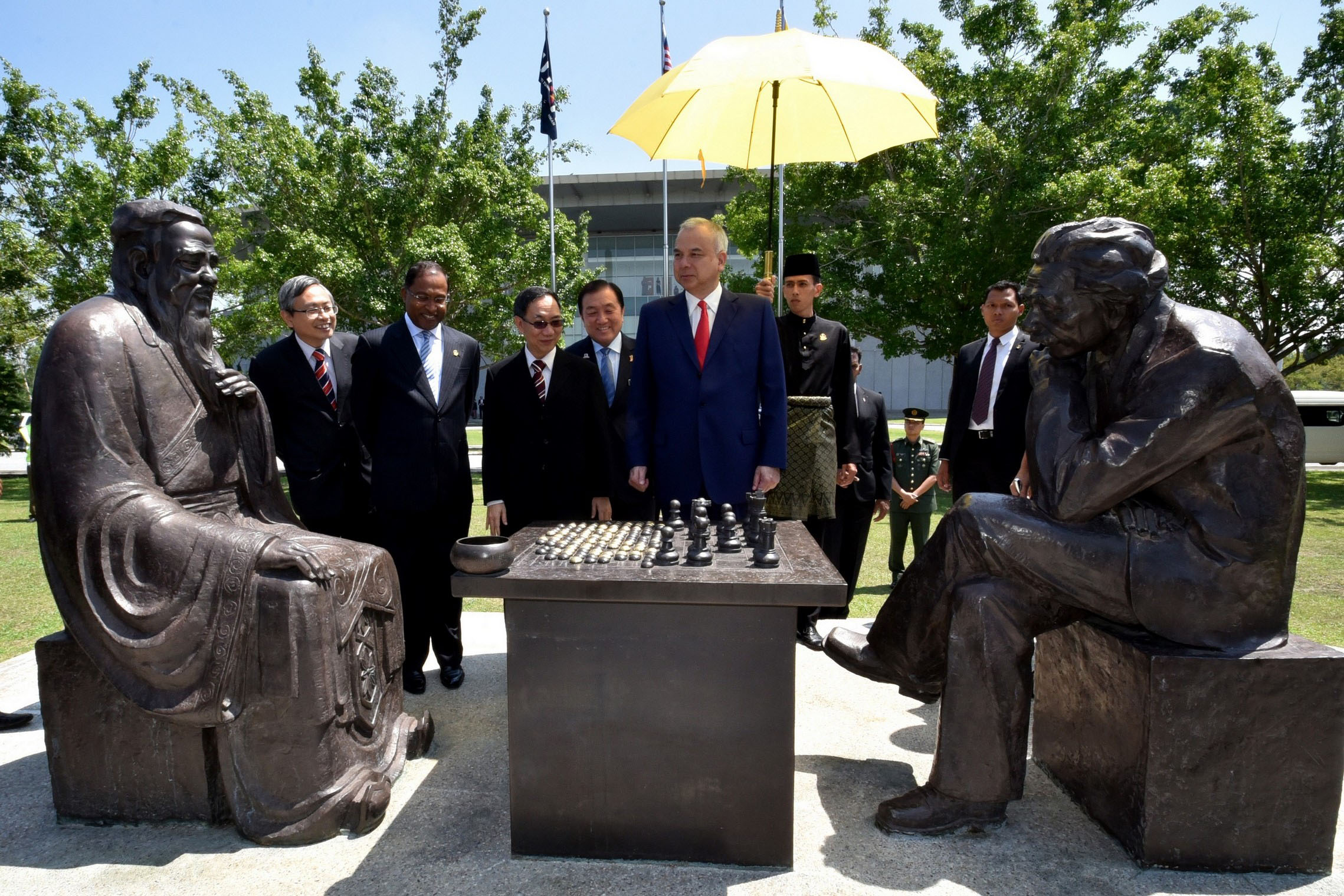
Sultan Nazrin at the bronze sculptures with (from left) Prof Ewe, Dato’ Seri Zambry, Prof Chuah and Dato’ Seri Ong
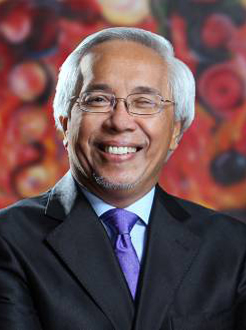
Tan Sri Zakri
On another note, Tan Sri Zakri presented a keynote address, titled “Science, Technology and Innovation as Drivers of Malaysia’s Growth and Competitiveness”. In relation to Science, Technology and Innovation being the driving force of Malaysia’s growth and competitiveness, Tan Sri Zakri mentioned about the successful structural changes that Malaysia has gone through; from once an agriculture-based economy, to a manufacturing-based economy, and now to a service-based economy. However, he also spoke of the Fourth Industrial Revolution as being a transformation that will change society’s way of living, working and relating to one another.
He further enlightened the participants and said, “In its scale, scope and complexity, the transformation will be unlike anything humankind has experienced before. Transformations around the world are fueled in a large part by technology and advancement in science. From biotechnology in Asia to AI in Silicon Valley, to block chain and global supply chains, technologies are creating ripple effects that impact societies, institutions and the economies. The convergence of these technologies is likely to entirely transform the ways in which we live, work and interact with one another. Taking stock of the new technologies as well as their disruption potential is critical for all nations and especially Malaysia in order to ensure sustainable economic growth and competitiveness.”
To further stimulate discussions and exchanges of ideas, two Nobel Laureates; Nobel Laureate in Physiology or Medicine Prof Sir Richard J. Roberts and Nobel Laureate in Physics Prof David Jonathan Gross also delivered their lectures, namely, “Why You Should Love GMOs” and “The Frontiers of Fundamental Physics” on the first day and the second day respectively.
Prof Roberts spoke of GMOs as promising technologies that could improve food supplies, and although not many have adopted this technology, he believed that using Golden Rice as an example, could give a clearer sight of the benefits of GMOs, especially in helping children who are suffering with development impairment due to the lack of Vitamin A in their diet.
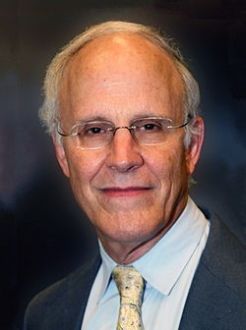
Prof Gross
Meanwhile, Prof Gross intrigued the participants to what it means to have discovered and understood the final theory of fundamental physics. He said, “At the frontiers of physics, we search for the principles that might unify all the forces of nature and we strive to understand the origin and history of the universe.”
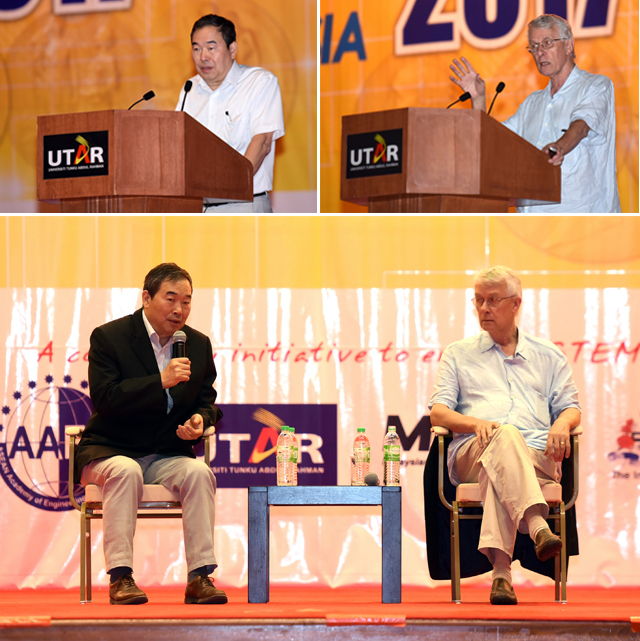
From top left: Prof Poo and Prof Roberts elucidating to participants on their respective topics, followed by a dialogue session
In addition to that, Professor Emeritus of Neurobiology of the University of California, Berkeley Prof Poo Mu-ming spoke of the cognitive functions of the brain, such as learning and memory to the participants on the first day of the camp. It was then followed by an enriching dialogue session delivered by Prof Roberts and Prof Poo on their respective topics. The second day of ASC 2017 saw a series of lecture titled, “A Study on Mathematical Systems and Its Relationships to Science, Economy, Management and Wealth”, “Palm Oil: God’s Gift to the World” and “Exceptions to the Rule: Gems of Biodiversity” delivered by a line-up industry leaders and senior professors, namely Founder and Group Executive Chairman Silverlake Group Goh Peng Ooi, Tan Sri Lee and Emeritus Professor (Genetics and Zoology) of University of Malaya Prof Emeritus Yong Hoi Sen respectively.
On the third day of the camp, the participants went on an exciting excursion in which the participants were able to visit some main attractions spots in Perak. The fourth day of ASC 2017 will be continued with lectures deliver by academics and industry players, namely Professor of Molecular Genetics of The University of Melbourne Prof Jerry McKee Adams, Honorary Professor of the School of Biomedical Sciences of The University of Melbourne Prof Suzanne Cory, Founder and Executive Chairman Top Glove Corporation Berhad Tan Sri Dr Lim Wee Chai, and Datuk Hong. The closing ceremony of the ASC 2017 will be held on 25 August 2017 which will also see the poster preparation, team presentation, cultural evening and farewell dinner.
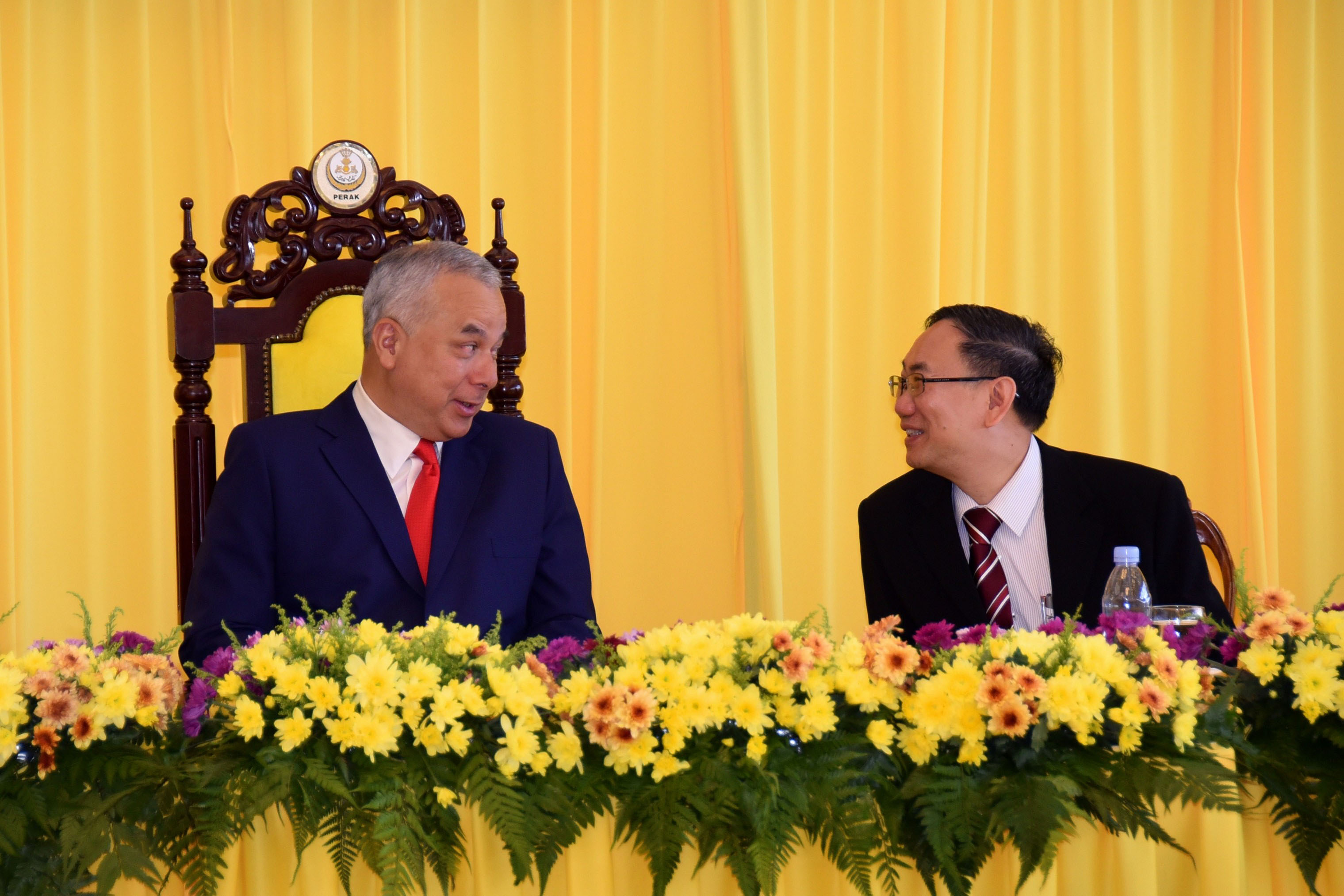
Sultan Nazrin and Prof Chuah sharing a light moment before lunch
ASC has been held annually in different parts of Asia including Taiwan, Thailand, Indonesia, India, Singapore, Japan and South Korea since its debut in 2007. The annual youth camp also has been seen as an opportunity for the promotion of international friendship and cooperation among the best young minds of the next generation in Asia. The camp also opens doors to more international exchanges among participants, further elevating the awareness and interest among youths on the importance of STEM in nation building and to the Asian continent.
ASC 2017 is the eleventh edition hosted by the KLESF, an initiative promoting interest in STEM among primary and secondary school students, and jointly organised by UTAR, AAET, MIGHT and IEM.
The week-long camp saw the presence of two Nobel Laureates and an array of distinguished scientists and technologists sharing their insights and knowledge with over 340 participants from more than 30 economies including Malaysia.
The idea of ASC was co-proposed in September 2005 after the Lindau Science Meeting by Prof Lee Yuan-Tseh from Taiwan and Professor Koshiba Masatoshi, a 2002 Nobel Laureate in Physics from Japan. With the Lindau Science Meeting which has been held in Germany for more than half a century set as a model, ASC invites many Nobel Laureates or world-distinguished scientists as speakers, and devises interesting programmes to attract participants.
The ASC 2017 included informative lectures, interesting dialogue sessions, creative poster competition, cultural showcase and excursion, which took place on alternate days throughout the week.

Participants collecting the papers prepared for their poster competition
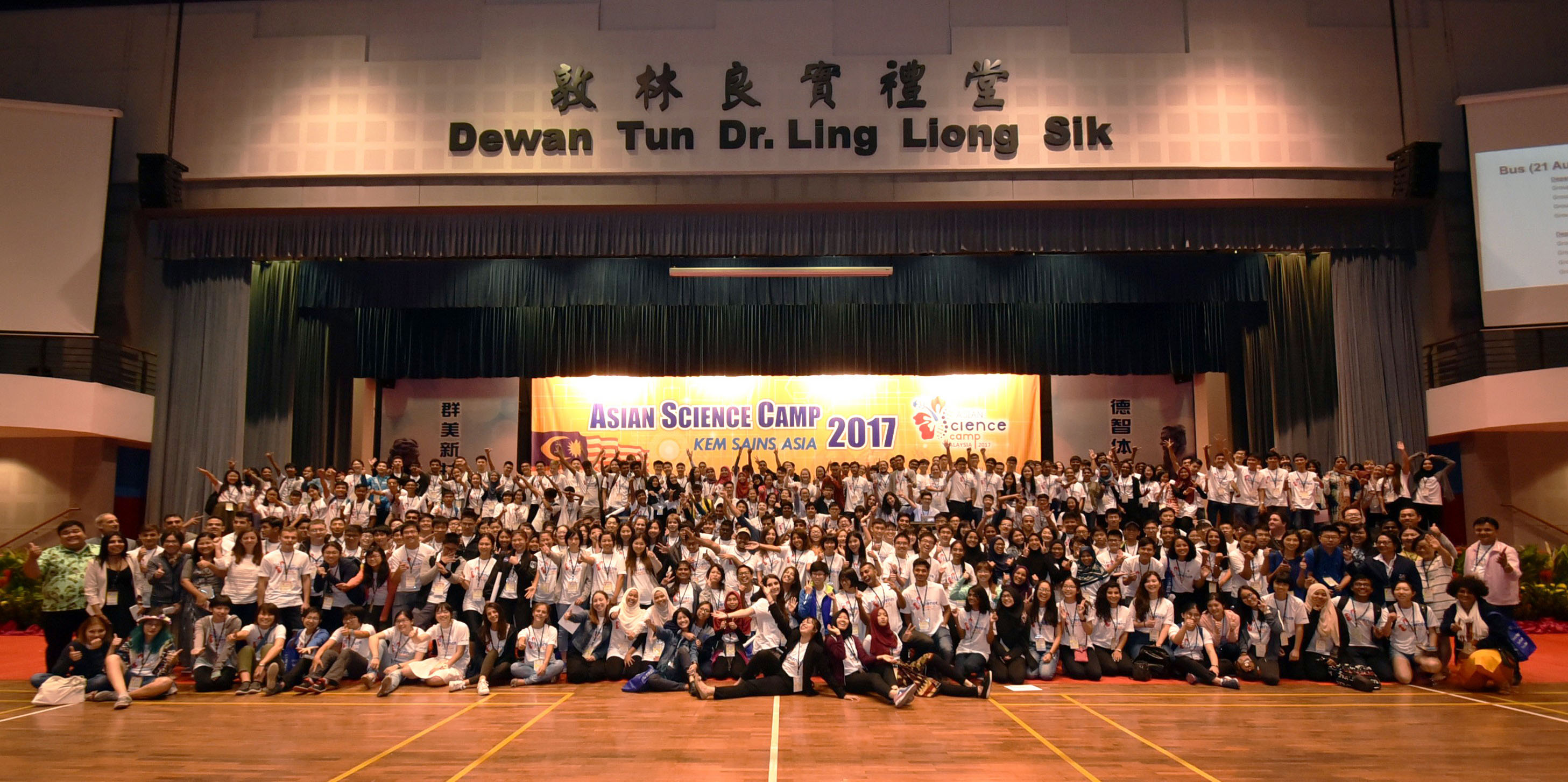
Marking the end of day one of ASC 2017 with a group photograph
© 2019 UNIVERSITI TUNKU ABDUL RAHMAN DU012(A).
Wholly owned by UTAR Education Foundation Co. No. 578227-M LEGAL STATEMENT TERM OF USAGE PRIVACY NOTICE